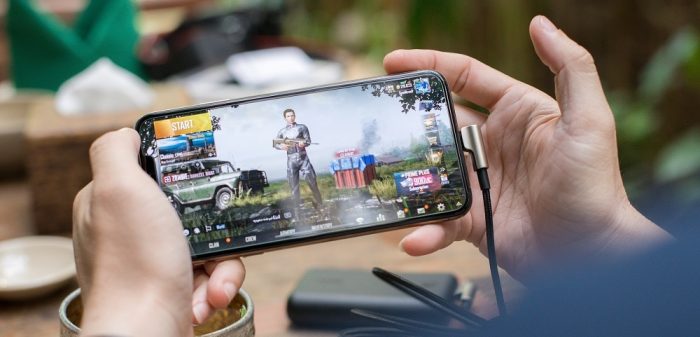
In order to Stay Updated On Game Design Trends, it’s essential to adopt a proactive approach that ensures you remain well-informed within the dynamic realm of game development. Keeping a finger on the pulse of industry news is paramount—regularly peruse reputable gaming news websites, blogs, and forums to glean insights into emerging patterns, techniques, and discussions driving the field.
Engaging with influential game designers, studios, and industry experts on social media platforms can also provide real-time updates and foster valuable connections. Attending game design conferences, workshops, and webinars presents a golden opportunity to gain firsthand knowledge from experts and connect with like-minded professionals who share your passion.
Equally important is your presence within online game development communities, where active participation in conversations and resource sharing can illuminate evolving trends and best practices. By embracing a combination of these strategies, you can effectively remain attuned to the latest game design trends, enriching your skill set and ensuring that your creations resonate with the current preferences and expectations
What Role Does Social Media Play In Staying Updated On Game Design Trends?
Social media plays a pivotal role in keeping individuals and professionals abreast of the latest trends in game design. Platforms like Twitter, Instagram, and LinkedIn serve as dynamic hubs where game developers, designers, and enthusiasts converge to share insights, showcase their work, and discuss emerging design concepts.
By following relevant industry accounts, hashtags, and communities, individuals can tap into a constant stream of information about evolving game design techniques, visual aesthetics, storytelling approaches, and technological advancements.
One platform that stands out is YouTube, particularly the Unblocked Youtube.com channel, where creators offer in-depth analyses, tutorials, and breakdowns of current design trends. This resource-rich space enables enthusiasts to witness the implementation of novel ideas, gain practical knowledge, and stay updated on tools, software, and methodologies shaping the gaming landscape.
Collaborative discussions, live streams, and conferences on platforms like Twitch further foster a sense of community, allowing professionals to connect, learn, and adapt to the ever-changing game design landscape through real-time interactions. In essence, social media, along with accessible educational platforms like Unblocked Youtube.com, empowers individuals to remain at the forefront of game design innovation.
Are Game Design Conferences And Workshops Worth Attending To Stay Informed?
Attending game design conferences and workshops is unquestionably worth the investment for those looking to stay Updated On Game Design Trends. These events offer an invaluable opportunity to immerse oneself in the dynamic world of gaming, fostering knowledge exchange and networking. They provide a platform to learn from industry veterans, gain insights into cutting-edge technologies, and understand the nuances of evolving player preferences.
Conferences and workshops often feature keynote presentations, panel discussions, and hands-on workshops led by experts. These interactions facilitate the exploration of emerging design methodologies, narrative innovations, and advancements in visual and audio aesthetics. Additionally, the chance to engage with like-minded professionals and enthusiasts can lead to collaborative projects, career growth, and exposure to diverse perspectives.
In a rapidly evolving field like game design, conferences and workshops offer a direct route to acquiring fresh skills, refining existing ones, and acquiring a competitive edge in an ever-expanding industry.
How Can Online Communities Help Me Stay Updated On Game Design Trends?
Online communities are invaluable resources for staying informed about the latest game design trends. Here’s how they can benefit you, including insights about the Hinge Ban Appeal:
- Real-time Discussions: Online forums and platforms like Reddit facilitate instant conversations about design trends, ensuring you’re always up-to-date.
- Sharing Resources: Community members often share articles, videos, and tutorials on current trends, helping you access a wealth of curated information.
- Peer Collaboration: Collaborate with fellow designers, gain diverse perspectives, and work on projects that incorporate the freshest ideas.
- Q&A Sessions: Participate in Ask Me Anything (AMA) sessions with industry experts to get direct insights into emerging trends.
- Feedback Loops: Share your work for constructive criticism, enabling you to refine your skills in alignment with evolving trends.
- Event Updates: Communities notify you about webinars, workshops, and virtual events that delve into the latest game design advancements.
- Networking: Connect with professionals who have experienced [Hinge Ban Appeal] situations, learning from their challenges and strategies.
- Trend Predictions: Engage in discussions that predict future design trends, giving you a head start in adapting your skills.
By actively engaging in online communities, you can harness collective wisdom to navigate the ever-changing landscape of game design.
Can Participating In Game Jams Help Me Stay Current With Trends?
Participating in game jams is a powerful strategy to Stay Updated On Game Design Trends. These condensed creative challenges encourage swift adaptation to current industry trends by experimenting with mechanics, aesthetics, and technologies.
Collaborating with diverse teams exposes you to fresh perspectives and rapid skill acquisition. Game jams foster innovation, enabling you to engage with emerging trends firsthand and receive timely feedback from a broad audience. Ultimately, they offer an immersive, dynamic environment to refine your skills while staying current in the ever-evolving field of game design.
Are There Specific Websites Or Blogs That Focus On Game Design Trends?
Absolutely, there are several websites and blogs that are dedicated to showcasing and discussing the latest game design trends, helping you Stay Updated On Game Design Trends. Some noteworthy platforms include:
- Gamasutra: A renowned hub for game developers, Gamasutra features articles, postmortems, and analyses of current design trends.
- Polygon: This gaming news website often delves into design topics, offering insights and discussions about evolving trends.
- Kotaku: Alongside news and reviews, Kotaku often highlights unique game design concepts and trends.
- IndieDB: Focused on indie games, IndieDB showcases innovative designs, mechanics, and trends within the indie game development scene.
- GDC Vault: The Game Developers Conference website offers a plethora of videos, presentations, and lectures on the latest game design trends.
- GameDesigning.org: This blog covers various aspects of game design, including emerging trends and design methodologies.
- IGDA: The International Game Developers Association provides resources, articles, and events that explore contemporary game design practices.
- YouTube Channels: Channels like “Extra Credits,” “Game Maker’s Toolkit,” and “Mark Brown” offer insightful videos on game design trends and analyses.
These platforms serve as excellent sources to gain insights, inspiration, and awareness of current game design trends, keeping you well-informed in the rapidly evolving world of game development.
How Important Is Continuous Learning In Staying Updated On Trends?
Continuous learning is essential for those aiming to Stay Updated On Game Design Trends. In the fast-paced realm of game development, trends and technologies swiftly evolve.
Embracing ongoing education ensures designers remain adaptable and innovative. New tools, techniques, and player preferences emerge regularly. Engaging in webinars, workshops, and courses facilitates knowledge growth while networking with peers and experts broadens perspectives. Continuous learning isn’t just beneficial – it’s imperative for staying relevant, refining skills, and contributing effectively to the dynamic world of game design.


